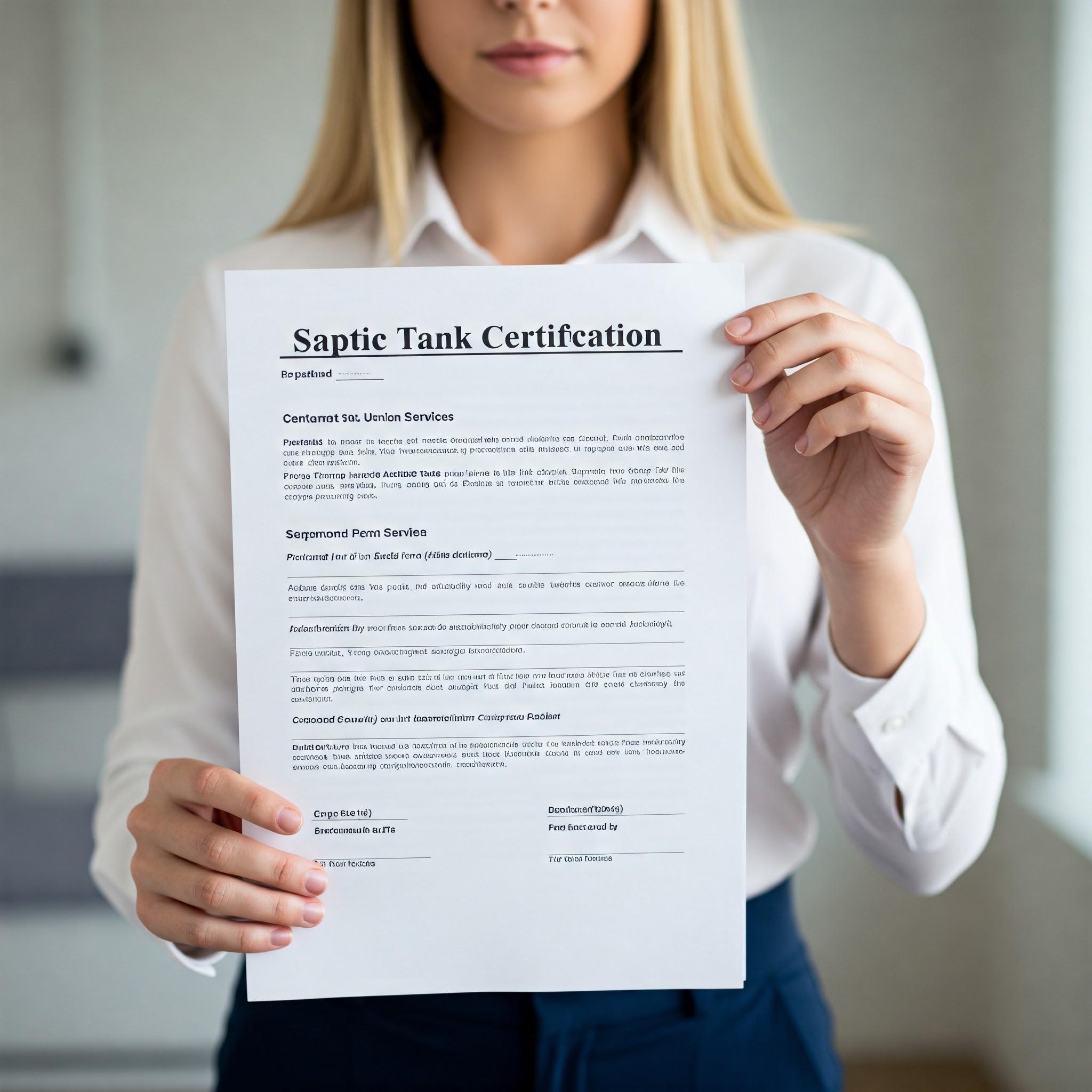If you're a homeowner or planning to sell your house in South Carolina, understanding the septic tank certification cost is important. Whether you live in Columbia or a rural part of the state, septic tank systems are common, and a proper certification is often required when buying or selling a home.
In this guide, we’ll walk you through everything you need to know about the cost of septic tank certification, what it involves, and why it's essential—especially if you're preparing your property for sale.
What Is a Septic Tank Certification?
A septic tank certification is a formal document issued after a thorough inspection of your septic system. It verifies that your tank is working properly and meets health and environmental standards. This certification is often required during a property sale or transfer.
In South Carolina, many counties and real estate agents will recommend—or even require—a valid septic certification to ensure the property is safe and ready for occupancy.
Why Is Septic Tank Certification Important?
There are several reasons why a septic tank certification matters, especially when you're dealing with property sales:
- Legal compliance: Some counties may require certification before closing a real estate transaction.
- Health and safety: Ensures the septic system is functioning properly and not leaking or contaminating groundwater.
- Buyer confidence: Gives the buyer peace of mind that they won’t face expensive repairs after the sale.
If you're planning to sell inherited house Columbia SC, getting this certification is a wise move to avoid delays or negotiations during closing.
How Much Does Septic Tank Certification Cost in South Carolina?
On average, the septic tank certification cost in South Carolina ranges from $300 to $800, depending on a few key factors:
- Size of the Tank
Larger tanks require more time and resources to inspect, which can raise the cost.
- Age and Condition of the System
Older systems may need more thorough checks or even minor repairs before certification, which adds to the cost.
- Accessibility
If your septic system is hard to reach or buried deep underground, it may take more work for inspectors to access it.
- Location
Prices may vary slightly depending on your city or county. For example, homeowners in Columbia or Charleston might pay slightly different rates than those in more rural areas.
What Does a Septic Certification Inspection Include?
A typical inspection for septic certification includes:
- Locating and uncovering the tank
- Pumping the tank (if needed)
- Checking for leaks or blockages
- Evaluating the drain field
- Verifying that all components are functioning correctly
- Assessing the sludge and scum levels
- Filing a report and issuing a certification if everything is in order
Some inspectors may also include a septic tank survey cost in the total, especially if they need to map the system or assess the drain field area in detail.
Who Can Perform a Septic Certification?
In South Carolina, septic certifications must be completed by a licensed septic inspector. You can contact your local health department for a list of approved professionals or ask your real estate agent for referrals.
How Often Do You Need a Certification?
While a septic tank doesn’t need certification every year, it should be inspected at least every 3 to 5 years, especially if the house is changing hands. If you are selling a house as is in South Carolina, having a current certification can make the process smoother and avoid potential legal or financial issues later.
Tips to Save Money on Septic Tank Certification
Here are some ways to reduce your septic tank certification cost:
- Schedule with regular pumping – Combining certification with regular maintenance might get you a discount.
- Shop around – Get quotes from at least 2-3 certified inspectors.
- Maintain your system regularly – A well-kept system is less likely to need repairs during inspection.
- Ask for bundled services – Some companies offer packages that include inspection, certification, and minor repairs.
What If My Septic System Fails the Inspection?
If your septic system fails, don’t panic. You will receive a report outlining the issues. Depending on the problem, it could be a minor fix (like a clogged filter) or something more serious (like a damaged drain field). In any case, getting it repaired before you try to sell my inherited house in South Carolina is essential. No buyer wants to deal with a broken septic system.
Septic Certification and Real Estate Transactions
If you're involved in flipping houses in South Carolina or buying a second home, understanding the septic system is critical. Septic problems can delay a sale, lower the home's value, or even kill the deal.
Having your septic certification ready gives you a strong selling point and ensures that the transaction won’t be held up due to unexpected plumbing issues.
Conclusion: Plan Ahead and Budget Wisely
Septic systems are an essential part of many homes in South Carolina. Understanding the septic tank certification cost will help you prepare, especially if you’re planning to sell your property or transfer ownership.
By taking care of your system and staying proactive, you can avoid expensive surprises and build trust with potential buyers. At RedHead Home Properties, we’re here to help guide you through every step of the real estate journey—from inspections to closing.
Whether you're planning to sell inherited house Columbia South Carolina or buy a fixer-upper to flip, having a valid septic certification is one of the smartest things you can do.
